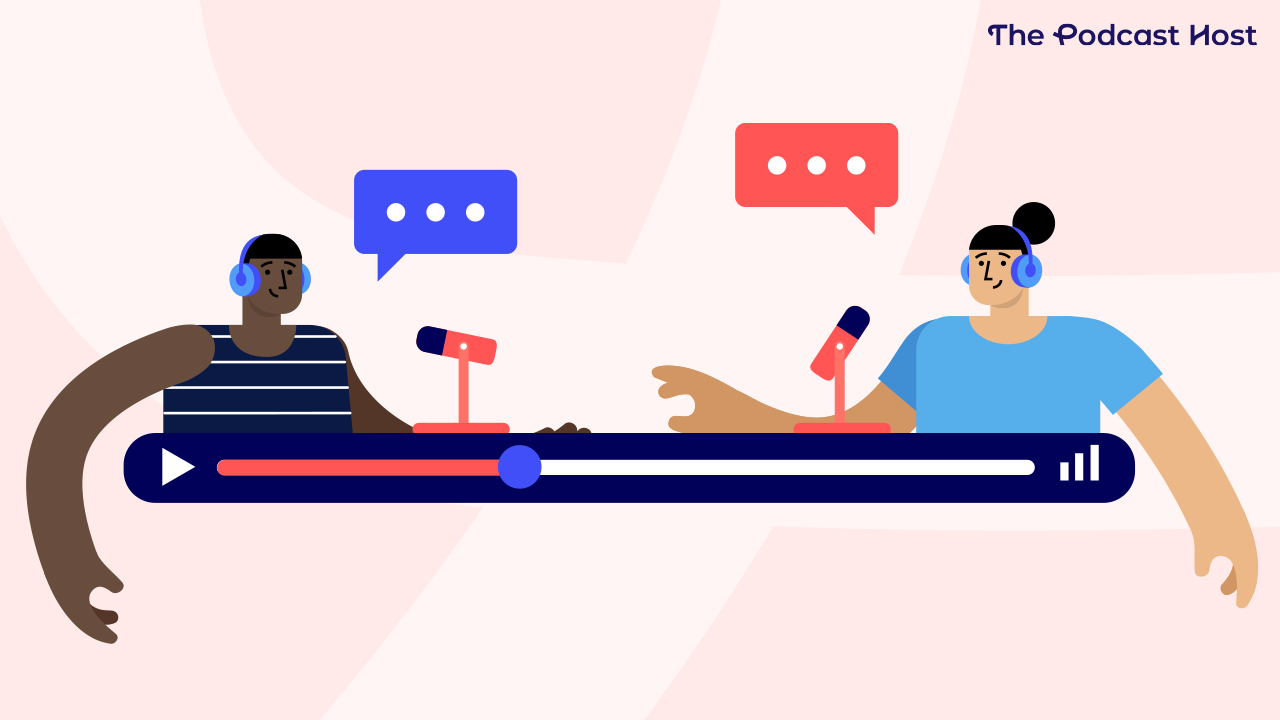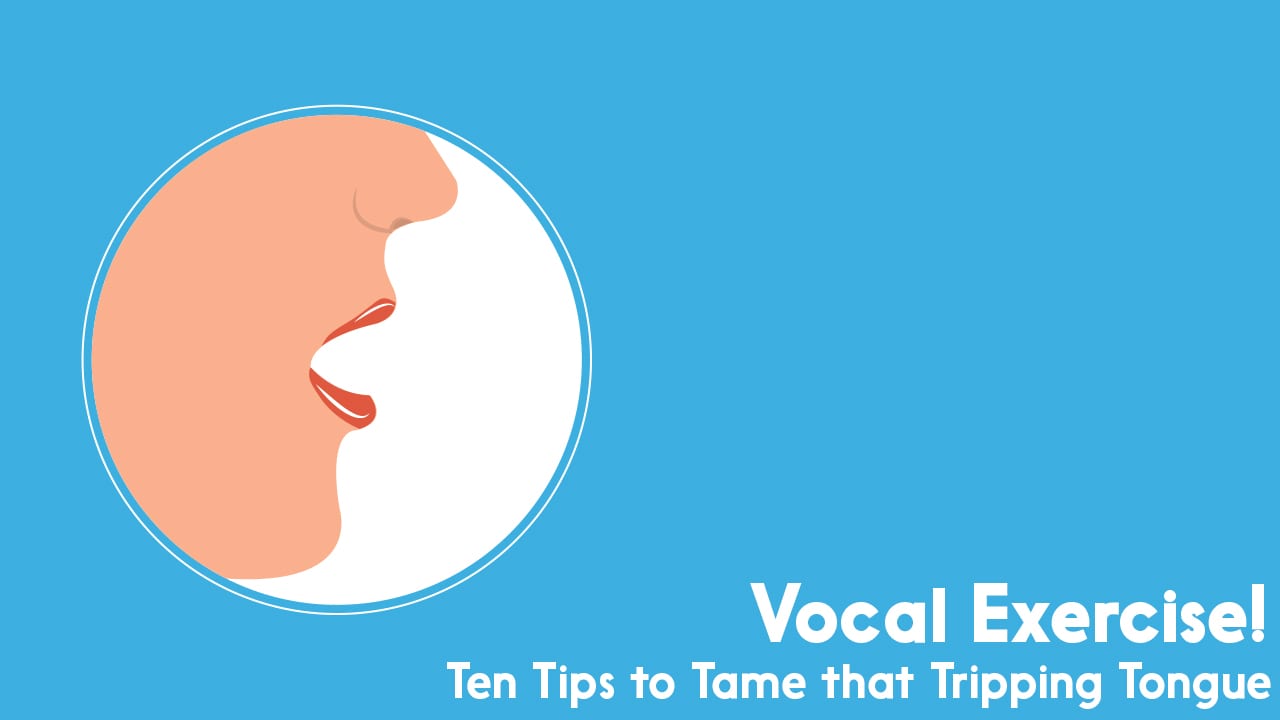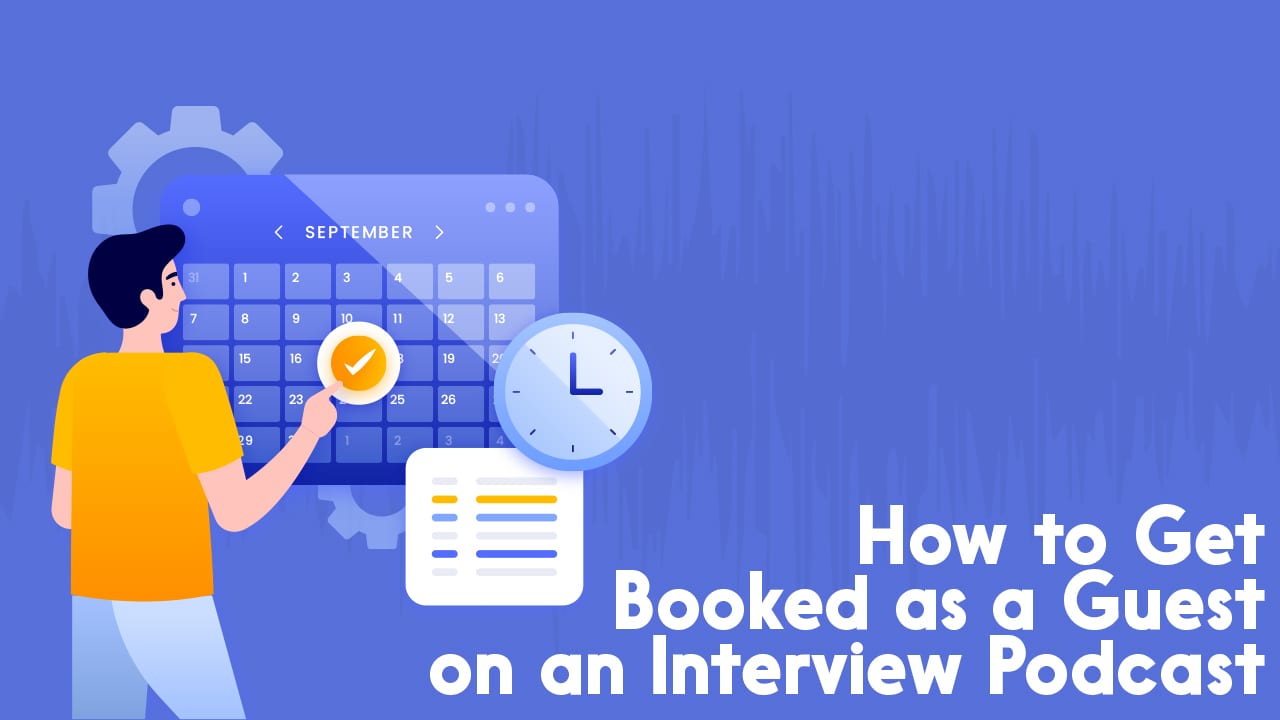12 Podcast Guest Tips: How to Be a Great Podcast Interviewee

No doubt you know it’s a good idea to prepare when you’re running a podcast interview. Unless you’re Mark Maron, a lack of prep is just plain lazy. But, what if you’re on the other end of the mic? Are there things you can do to be a great podcast interviewee? Do we have any podcast guest tips to help you sound your best when being interviewed on a podcast?
As it happens, yes! 12 of them, in fact…
In this article, I want to lay out a range of things you can do to make sure your podcast appearance is unforgettable. Interviews are an opportunity, and so many people waste them, falling into a sea of mediocre content. Instead, let’s grab the opportunity, go on that show, and deliver one of the best interviews they’ve ever heard!
Interested? Let’s take a look at how to be a great podcast interviewee.
And remember, if you’re back in the interviewer chair, you can read how to prepare for a great interview here, or learn some of the best interview questions around, here.
How to Be a Great Podcast Interviewee: LEVEL 1
Firstly, let’s run through the low hanging fruits and quick wins that’ll make sure you’re nailing the basics.
Turn Up… Podcast Guest Tip #1
This is as basic as it gets. And yet… I’ve lost count of the number of interviews I’ve been stood up for.
Inexplicably, those no-shows include situations where the interviewee has chased me for the chance to come on my show. They’ve spent time arranging the appointment. I’ve spent time researching it, preparing for it.
And yet, they still don’t show.
If you want to get more interviews in future – if you want to keep a decent reputation in the industry – then just show up. Every time.
Something came up? If it’s genuinely important, then fair enough. Life happens. But put it into your process to get people’s contact details so you can send them a quick message, at least. Don’t leave folk hanging on the other end of a Zoom call.
Interviewee Action
- Set up a process for every interview: get contact details, and set reminders so it’s impossible to forget.
- Take it seriously: this is people’s time, including YOUR OWN! Don’t book it if you don’t value it, and treat it as such.
Get Some Decent Gear: Podcast Guest Tip #2
Content is king, sure, but no one wants to listen to half an hour of crappy quality audio. Bad vocals make you sound amateur. They don’t make the best use of the time you’re investing in this interview. If you’re hunched over your laptop, barking into a crappy internal mic, it shows, and your amazing insights are lost in a sea of strained, distorted voice.
Even the ‘interview standard’ iPhone headset is pretty poor in most situations. They pick up background noise and rub against your jumper when you move. You can do better, and make sure you come across in the best light to this new audience.
Interviewee Action
This is an easy fix.
- Get yourself a decent quality USB microphone, like the Samson Q2U (standard budget) or a Rode Podcaster (high budget).
- Team that with a good mic stand, like the Rode PSA-1.
Set the pair up so your mic is always ready on your most-used desk. Great quality audio, easily accessed. Done.
Be in a Good Location: Podcast Guest Tip #3
This is the final basic pre-flight check. WHERE you record.
Rule #1, for the love of all the microphone gods, do not record in a public place. Background noise is the worst, and YES, that coffee grinder in the background at Starbucks is ruining your interview.
Even quieter sounds, like passing cars, or clinking plates, come across much louder in a recording that it does to your ears.
Next, choose the softest room you can. A glass-walled, tile-floored office is about as bad as it gets for reverb and echo. Look for carpets, sofas and curtains. Any room with a bit of… cosiness. This is why people genuinely record inside their wardrobe, or under a duvet.
In an ideal world, you’ll have a regular spot, which is always set up, and which is treated in at least a basic way. For example, your home office, with some sound tiles stuck up on either side of your desk.
Interviewee Action
- Ideal world: Create your ‘home recording studio’. Install your mic, and put up a few soft items around your desk to treat the area.
- Real world: Find a private place you can use as your go-to interview spot. Make sure it’s as ‘soft’ and as silent as possible.
For more help optimising the sound of your room, check out how to create a silent home studio, acoustic treatment for podcasters, and acoustic blankets for podcasting.
Avoid the Ubiquitous Background: Podcast Guest Tip #4
To the content, then!
The one thing you can be 90% sure of, is that, on any given podcast interview, you’ll be asked about your origin story.
“How to get to where you are now?”
Whether this is a good thing is a different question. You can read how to run a good podcast interview for my thoughts on that, but spoiler: in most cases, it’s not a great listener experience!
So, take a bit of ownership over the content and rehearse this. You should have a good 1 to 2-minute‘ origin story’ which is general to any audience. Keep it short and know that intro well. More often than not, it’s your first impression, and you know what folks say about that…
What’s in this intro? In a general sense, it should tell a story, show your expertise and set the scene, but not go into too much depth, at this stage. That’s the interviewer’s job: to know her audience and to go deep on the parts they know their audience will enjoy.
Your job is to establish credibility (your subject experience and successes), to establish a rapport (the personal story, your values, perhaps some failures) and to signpost some interesting things to delve into later.
If you can, when you go on a podcast, you’ll tailor the story a little for that particular audience. Find out their specific interests, and emphasise the parts of your story.
For example, I worked in a university for 5 years in my late 20s, early 30s. That’s of near-zero interest to most hardcore tech founders, but it’s of huge interest to educational podcasters. I speak to both audiences, so I need to tailor the story a little, each time. On tech shows, I won’t miss out my education experience entirely, but it’ll just be a short bullet in the larger story.
Interviewee Action
- Write it out. Spend an hour writing 200 or 300 words that summarise your ‘origin story’. You don’t need to say it word for word, on any given show, but having it written down helps you refine what you’ll say in future.
Go Short, and Give Options: Podcast Guest Tip #5
Brevity goes way beyond just your origin story. It’s important the whole way through your interview.
The power of podcasting is the conversation. It’s the dynamic back and forth. So, make sure you treat it like that, rather than a monologue.
The trouble is, the latter is far too common. Many interviewees get on a show and they want to teach as much as possible. So, they’ll get into a subject, and they’ll just keep going…
Firstly, when I listen to an interview like this, where someone speaks for 5 minutes at a time, solo, it just sends me to sleep. Where’s the chemistry? The banter?
Secondly, this assumes that you know exactly what the listener wants to hear. But, who probably knows better? The show host!
I’ve written about how interviewers, the host of the show, should take more control over interview content. But, interviewees can help by keeping things shorter, by signposting other interesting topics, by letting the host guide them on where to go deeper.
This includes asking them a question before you just jump in!
“So, yea, that’s how a Facebook ad works! Do you think it’s worth digging into how to set one up here, or should we get on to the bits I think make it most effective, like Re-targeting or custom audiences?”
Help the host by giving summaries and suggesting pathways, but let them guide you to the areas they know will have the biggest impact on their audience.
Interviewee Action
- When you answer a question keep it shorter. Don’t feel the need to fully explain every little thing. Instead, summarise, signpost, and then ask the host: which do you think we should get into first? This or that?
Offer Obvious Takeaways & Homework: Podcast Guest Tip #6
Honestly, you’ve no idea how easy it is to stand out by doing this one simple thing: give the listener 1 or 2 really concrete, practical ideas to take away and change their practice.
Or, even better, give them 1 or 2 concrete, practical things to go away and DO, right now.
This doesn’t mean send them to your mailing list or your lead magnet. That comes after, if you really want to. This is something that takes what you’ve taught in the rest of the show, and makes it WORK.
Think homework. You’ve just taught a class. What can the student do next to solidify that learning in their minds? To transform it from theory into practice.
“Here’s what I want you to do, right after this show. Get into your Facebook ads account and click on custom audiences. Then, watch the video I’ll send over to Greg to put in the show notes. That shows you exactly how to set up your first one. Think about what we said earlier on your beachhead market – a really specific set of people that’ll validate your product. Spend a week and $20 targeting them. Then check the stats, see how successful it was, and iterate from there. That’s when you get into the review plan we talked about.”
See how specific that is? It’ll take just 20 minutes to do, and give the listener a real, practical outcome. Include something like that in your next interview and just watch how your engagement with that audience soars.
As a bonus, this helps the show host too. Practical tasks, including good resources, draw listeners to the show notes, and the website as a whole. That increases listener engagement with the hosts’ content, their email list and much more. There’s not a podcaster in the world that won’t thank you for that!
Interviewee Action
- Start collating a list of ‘homework’ tasks that you can set the listener on future podcast interviews. Best best task will vary per show, per audience, per topic, but if you have that bank there, you can draw from it on the fly.
- Tell the host about this ahead of time and check what tasks might suit best.
- Give the host some resources that they can include in the shownotes that’ll help the listener complete the task.

How to Be a Great Podcast Interviewee – LEVEL 2
Time to go beyond the basic. Just a little extra work and you can stand out, head and shoulders above the standard podcast interview.
Have Unique answers to the ‘standard’ Ten: Podcast Guest Tip #7
You know at least some of these are coming, so why not prepare? I have a document with good answers to all of the ‘standard’ questions I’ve heard over the years.
Sure, you could answer these on the fly, but the point here is to stand out, isn’t it? No one wants to hear another interview where the recommended book is “Start with Why”, or the one bit of advice is “just take it easy, realise things are going to be OK.”
Take the time to think through the questions below, and come up with some unique answers. Think about your background, your uncommon beliefs (another common question, funnily enough!) and craft your answers accordingly, so they’re uniquely you.
I keep this updated, casting my eye over the existing questions every few months. I also add new questions to it all the time, after being asked them on a show, or hearing them on another interview.
- What’s your favourite book?
- What’s your favourite quote?
- What do people get wrong?
- What’s been your biggest challenge?
- What was your biggest mistake?
- What one bit of advice would you give your younger self?
- What should they do first?
- Any final words for our listener?
Interviewee Action
- Spend 30 minutes each week adding a unique answer or two to your list. Keep it updated as you come across new ones.
Research the Interviewer: Podcast Guest Tip #8
Everyone knows that it’s good practice to research your interviewee, but what about the other way around?
It’s easy to be invited on to a show, and turn up with little more than a general idea of the show’s name and topic. You know your stuff after all – you’ve crafted your general answers above, so you’ll fly through it, right?
Well, maybe, but think how much more natural and useful an interview sounds when you can refer back to the host’s work. Remember, you’re speaking to the listener, really, and they’re big fans of this show. They know and like the host, so if you show you do the same, you’ll build instant kinship. They’ll identify with you far more.
On top of that, when you’re answering questions, it makes for much better teaching if you can put it in a context that they understand.
For example, I go on the Tim Ferriss show and Tim starts firing questions at me, one of which might be: “How do you make money from a podcast these days?” I could refer back to the fact that his model is sponsorship, and lay out to the listener how much you can make from that. Then, I could refer back to his experiment with a listener-supported model – it doesn’t work for him, but it does for many others. So, that could be a nice deep conversation on the pros and cons, or who it might work for. I could mention books as a great way to monetise a show, using his ‘Tools of Titans‘ as an example.
When you can use the host’s ecosystem, the host’s world, as examples in your answers, then it makes way more sense to the listener. That means they learn more and get more success as a result, which makes for far more success for you.
Interviewee Action
- Spend 10 minutes looking the host’s website and social media. Get an idea of the work they’ve done, the products and services they sell, and the value they offer to their audience.
Offer Some Practical Tools: Podcast Guest Tip #9
You’re a big picture thinker, I know… It’s not about the tools or the tech, I know, I know. It all changes so fast, yea, yea…
But, all of that doesn’t change the fact that a big proportion of every audience just loves a gadget, a tool, a tactic, a framework. People go crazy for solid, tangible things to go away and use right away. So, take your big picture and put some practical tools around it.
Sure, qualify it with the fact that the tools don’t really matter, but give it to them anyway.
If you can put something in their hands that’s useful, something time saving, something the listener grows to love, then that makes you memorable.
Interviewee Action
- Start collating a list of tools, resources and gadgets that serve your audience.
- For each interview, pick out 2 or 3 that you think are most relevant to that audience.
Have a Spectacular Ending: Podcast Guest Tip #10
The finale is almost as important as the first impression. More so, perhaps.
This is your chance to take the most important step of the entire conversation and underline it.
So many podcast interviews offer great content, but leave the listener hanging on where to get started. So, think about this well ahead of time. What do you want this audience to do, right away, after they finish listening?
Make sure it serves them, first and foremost. This is your chance to create a legion of new fans. If you’ve followed all the steps above, then you’re already unique, you’re memorable. Now, you make yourself a legend by giving the listener some instant success.
So, what part of the conversation can they put into action right away, and win a bit of success?
For me, it’s often the gear. This is what new podcasters tend to struggle with the most. The amount of anxiety that arises when looking through lists and lists of microphones is amazing. So, at the end of any ‘how to start a podcast’ interview, I’ll give them these steps:
- Theory: You have permission to keep it super simple. It’s the best choice at this stage to help you launch a great show and make it easy to run!
- Action: So, get out there buy a Samson Q2U, right now. Plug it right into your computer and hit record.
End with a bang, and leave the listener in no doubt as to what they should do next.
Interviewee Action
- Pick out 2 or 3 tools, tactics and frameworks to give to the audience, during the interview. Have a toolbag of these resources for all the different audiences you speak to.

How to Be a Great Podcast Interviewee: LEVEL 3
Alright, now we’re ready to step up and play at the highest level of podcast interviewee-ship!
Feed the Interviewer Some Good Questions: Podcast Guest Tip #11
Here’s the secret sauce. This is the thing that 99% of interviewees DON’T do, but which creates some of the best interviews around.
Tell the interviewer what to ask you.
It’s so simple it’s almost laughable, but it works like a charm. Don’t expect the interviewer to dig out the golden nuggets all by themselves. Instead, feed them some prompts so that you get to give them your best stuff, and make the biggest impact.
How does this work? Well, think about the audience you’re speaking to. Make a judgement on what’s likely to make the biggest impact with them. Then, plan out a 5 to 10-minute segment on that. You know the content, so all you need are the questions. And this goes to the interviewer. Here’s how I usually couch it:
“Hello Mrs Interviewer, I wanted to let you know, I think my approach to ‘Content Stacking‘ will have a huge impact on your audience, because of reasons X, Y and Z. How about we spend 10 or 15 minutes going through how I create blog posts, videos and podcasts in just one process in way less time? If you’re up for that, here’s a set of questions that I’ve seen work well. It means we can have a good chat about it without having me drone on for too long on my own!
1. I see you do a lot of blog posts that have videos and podcasts attached – what’s your thinking behind that?
2. Great, so what’re the first steps in planning out one of these ‘stacked’ posts?”
You’ll find, as long as you’re humble, and it’s just a suggestion to improve the content, that interviewers will love this. Any decent podcast host will see that it can make for a great, solid segment that is nice and conversational. The alternative tends to be a big long monologue, interviewee only, which gets boring very, very quickly…
Interviewee Action
- Start building your toolbox of ‘segments’ and a set of questions that nicely guide you through them. Then, start sending relevant suggestions before future interviews.
Ask the Interviewer a Question or Two: Podcast Guest Tip #12
Let’s finish up with how you treat an interview. By which I mean, don’t treat it like an interview. Instead, remember it’s a conversation! So, keep your replies brief, and ask some questions of your own.
Questions make you more interesting, more dynamic, and they make your content better because you can take much more guidance from the host of the show.
For example, instead of diving right through 15 minutes of how to record and edit a podcast, I could ask: “Do you think your listeners would be interested in a few tips on how to make podcast editing quicker?”
Imagine the difference when she responds: “Do you know what, our listeners are mostly small businesses, so I think they’d be outsourcing that. Do you have any tips on working with a podcast producer instead?”
You then get to give the listener the content they’re really interested in, instead of just assuming.
The final benefit here is that you show you’re a human! You’re actually engaging with the host of the show, this person that the listener has grown to like over time. And what happens then? They like YOU more too!
Interviewee Action
- Be interested! Stop speaking for 5 or 10 minutes at a time, and shouldering the host aside. Instead, speak short and concise, get the host involved, ask their opinion and encourage them to guide you.
Ready to Deliver a Great Podcast Interview?
I hope these podcast guest tips have given you a few ideas on how to make your next interview a whole lot better.
Don’t feel like you have to do it all at once. Try a few parts of level 1 to start with, and then add things in as you get the practice in. Even just a little bit of prep, like I said, puts you miles ahead of the majority.
If you’re raring to go, but don’t have any podcast guest appearances lined up just yet, then be sure to check out how to get booked as a guest on a podcast.
And if you like guesting on podcasts, why not think about running your own? We have a free step-by-step ‘how to start’ guide that’ll walk you through every single step.

Let Alitu Take Care of Your Podcast Editing
Alitu is a tool that takes your recording, polishes it up, adds your music, and publishes the episode, all automatically.
Learn more about Alitu
On top of that, you might like our ‘Podcast Maker’ tool Alitu. With Alitu you can record, edit, produce, and publish all from one super-simple dashboard. Alitu does all of the heavy lifting (much of it automatically) so that you can spend more time on creating great content your audience will love. Try it free for 7 days.


